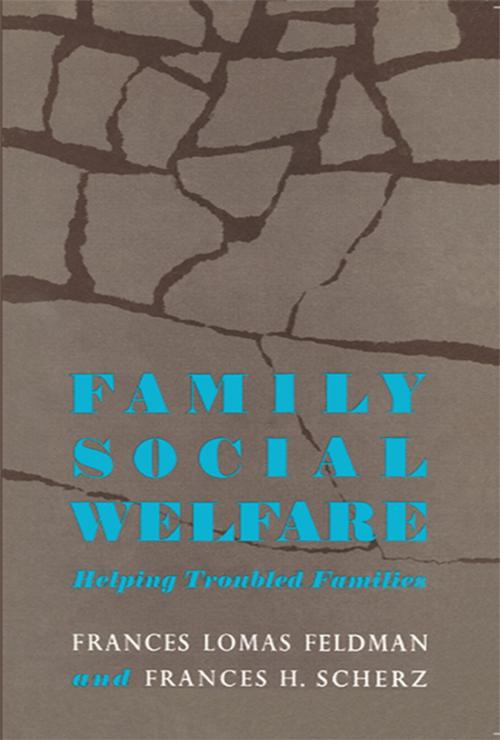Family Social Welfare
Helping Troubled Families
Nonfiction, Social & Cultural Studies, Political Science, Politics, Social Services & Welfare, Social Science, Sociology| Author: | Frances Scherz | ISBN: | 9781351520324 |
| Publisher: | Taylor and Francis | Publication: | July 12, 2017 |
| Imprint: | Routledge | Language: | English |
| Author: | Frances Scherz |
| ISBN: | 9781351520324 |
| Publisher: | Taylor and Francis |
| Publication: | July 12, 2017 |
| Imprint: | Routledge |
| Language: | English |
Our changing cultural environment and societal attitudes are subtly but unmistakably altering the personality development of the individual and the functioning of the family. The increasing complexity of the emotional and social problems of their clients is requiring social workers to understand and meet the needs of the entire family group as well as of its individual members. Two nationally known experts in the field have collaborated in writing the first comprehensive work to deal with this new trend in social work.
The authors' many years of experience in practice, teaching, and observation throughout the field are reflected in this lucid and systematic book, which introduces the reader to what is known about normal and deviant behavior in the context of family life, how families can be helped to lead normal lives, and how disrupted family structures can be rebuilt. In addition, the practitioner will find in this pioneering volume important new diagnostic insights and valuable guidelines for his work.
The case material used throughout the book, in brief form, for illustrative purposes, is drawn from various social welfare agencies. In general, the cases were chosen because each has applicability to the work of different kinds of social agencies. Selected reading suggestions have been compiled with respect to each section for the reader interested in enlarging his knowledge about human behavior, our society, and the giving of help to troubled families and individuals. These reading suggestions include not only relevant nonfiction, but also fiction-old and new-that offers valuable insights into certain behaviors and circumstances of troubled individuals and families.
Of immediate usefulness as a text in all courses in social work and sociology dealing with the family, this book will prove equally valuable to social workers in voluntary agencies as well as to those in public social agencies at local, state, and national levels, to teachers, and
Our changing cultural environment and societal attitudes are subtly but unmistakably altering the personality development of the individual and the functioning of the family. The increasing complexity of the emotional and social problems of their clients is requiring social workers to understand and meet the needs of the entire family group as well as of its individual members. Two nationally known experts in the field have collaborated in writing the first comprehensive work to deal with this new trend in social work.
The authors' many years of experience in practice, teaching, and observation throughout the field are reflected in this lucid and systematic book, which introduces the reader to what is known about normal and deviant behavior in the context of family life, how families can be helped to lead normal lives, and how disrupted family structures can be rebuilt. In addition, the practitioner will find in this pioneering volume important new diagnostic insights and valuable guidelines for his work.
The case material used throughout the book, in brief form, for illustrative purposes, is drawn from various social welfare agencies. In general, the cases were chosen because each has applicability to the work of different kinds of social agencies. Selected reading suggestions have been compiled with respect to each section for the reader interested in enlarging his knowledge about human behavior, our society, and the giving of help to troubled families and individuals. These reading suggestions include not only relevant nonfiction, but also fiction-old and new-that offers valuable insights into certain behaviors and circumstances of troubled individuals and families.
Of immediate usefulness as a text in all courses in social work and sociology dealing with the family, this book will prove equally valuable to social workers in voluntary agencies as well as to those in public social agencies at local, state, and national levels, to teachers, and















